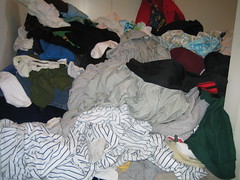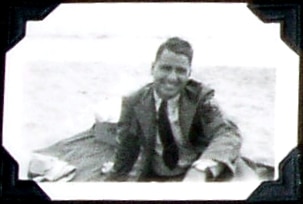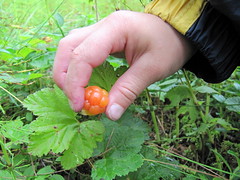Get ready for Writing Wednesday tomorrow!
This has bugged me for a long time (I actually have a draft about this from a year ago), and I don’t know how much help I can really be, and I did just post something kinda ranty on Monday—but the time has come. I must take a stand for and against commas.
Okay, mostly just for the proper use and against the incorrect use of commas. (Note: we’ll be using the linguistic convention of marking incorrect sentences with an asterisk.)
When you DO NOT need a comma
- When you are using a title with a name
 He is not President, Barack Obama. You are not author, Jimble Berry. The comma implies we don’t necessarily need the element, that the sentence would be complete without it. But Barack Obama isn’t the only president ever in the history of the universe.
He is not President, Barack Obama. You are not author, Jimble Berry. The comma implies we don’t necessarily need the element, that the sentence would be complete without it. But Barack Obama isn’t the only president ever in the history of the universe.
If the title can’t stand by itself, do NOT put a comma in there. You wouldn’t say:
*I had lunch with president!
*You spoke with head chef.
*Vice president fired him.
Thus, you wouldn’t use a comma there: I had lunch with President, Obama. VP, Wilsher fired him.
- Kinda the same thing: when the thing after the comma isn’t the only example of the the thing before the comma
This might be easier to illustrate with examples:
*Last night I watched the television show, Jeopardy!.
*My sister, Brooke, had a baby three weeks ago. [I have three sisters. And one new niece!]
The comma in the first sentence indicates that Jeopardy! is the only television show. At all. Ever. I didn’t know that. As addictive as Jeopardy! is, I’m not sure how I waste so much of my life in front of the television if that’s the only show ever. But hey, when my turn finally comes up, I’ll know answer question to that question answer.
When you use a comma there, it means that “the television show” and “Jeopardy!” are the same thing. But the “the” is equally culpable, since that means there’s only one. So it’d be fine to say, “I was watching Jeopardy!, a television show, last night . . .” (You know, if you were on Mars and talking with someone who didn’t know what Jeopardy! was.)
- When you’re using multiple adjectives that modify one another or that must read in that order
*I have a bright, red dress.
*She loves her Marine, drill, instructor boyfriend.
*Two, old, men played chess.
The first would be correct if your dress is both red and bright—but if you’re trying to say it’s a bright shade of red (which I’m guessing you are, unless your dress has LEDs), you need to drop the comma. Unless it’s a red, bright dress.
The second and third examples illustrate the other point. The commas tell us the order of these adjectives could change: that’s your long, old, dirty shirt could be written with those adjectives in any order and still make sense. “Her instructor, Marine, drill boyfriend” and worse yet, “men, old, two played” don’t work there.
- Between an adjective and its noun.
Along with example #3 from the last round:
*I have a big, fish.
*He likes raw, bacon.
I hope this is obvious!
- Between a subject and its verb
This doesn’t include phrases set off by commas, though.
*President of the United States Barack Obama, gave an address yesterday.
*The biggest problem here, is that we don’t know what a subject and a verb are.
(Note that if you added a “the” to the beginning of sentence 1 and a comma before “Barack,” you’d have it right!)
When you DO need a comma
- When you’re using a title with the
The “the” makes it grammatical to drop the name, so you need commas to set it off.
The President of the United States, Barack Obama, addressed Congress.
He was fired by the vice president of internal sales, Jim Ferrera.
It would be okay to drop the names from these sentences: “He was fired by the VP of internal sales.” So the comma is necessary.
- Kinda the same thing: when the thing after the comma IS the only example of the the thing before the comma
Again, easier to illustrate with examples:
Last night I watched the longest-running Broadway musical in the history of all time, Springtime for Hitler.
My middlest sister, Brooke, had a baby three weeks ago. [She’s in the middle of my three younger sisters. That makes her middlest. I reserve the right to make things up.]
Just like above, if you can completely drop the element, it needs to be set off by commas.
- Between interchangeable adjectives
 If you could say the adjectives in another order and still have a grammatical sentence, use commas:
If you could say the adjectives in another order and still have a grammatical sentence, use commas:
Your old, long, dirty shirt stinks.
Your dirty, old, long shirt stinks.
Your long, dirty, old shirt stinks. (Wash it!)
- To set off a dependent clause.
These clauses can’t stand alone as sentences. They include participial phrases, clauses of time and other modifiers.
Walking out the door, she noticed how scuffed the frame was.
When he woke up, he found a shiny nickel.
She hopped down the stairs, yelping all the way.
However, when these elements are in order in the sentence (i.e. not moved to the beginning), you don’t need one:
He found a shiny nickel when he woke up.
She held up her hands as she backed away.
It might seem complex, but with practice and meticulous self-editing, you really can become a comma wizard. Don’t give up on grammar or claim that it’s someone else’s responsibility!
When do commas stump you?
Photo credits: Obama by Floyd Brown; laundry by supermayd

 The character I’m playing with today is Frank Walters. He served in the Office of Strategic Services in World War II and when the story takes place, just after the war, he’s with the Central Intelligence Group (predecessor of the CIA). Physically, he’s based loosely on my husband’s grandfather Walter, who was in the Navy in WWII, pictured here. (Somehow we ended up with his WWII scrapbook. He traveled the whole world during the war, with pictures and postcards from Hawaii, Scotland, Iceland, Morocco, the South Pacific, and I know he served in Japan, too.)
The character I’m playing with today is Frank Walters. He served in the Office of Strategic Services in World War II and when the story takes place, just after the war, he’s with the Central Intelligence Group (predecessor of the CIA). Physically, he’s based loosely on my husband’s grandfather Walter, who was in the Navy in WWII, pictured here. (Somehow we ended up with his WWII scrapbook. He traveled the whole world during the war, with pictures and postcards from Hawaii, Scotland, Iceland, Morocco, the South Pacific, and I know he served in Japan, too.) Jeannie Campbell is a Licensed Marriage and Family Therapist in the state of California, and she’s an award-winning writer. She combined her two loves (brilliant!) with the
Jeannie Campbell is a Licensed Marriage and Family Therapist in the state of California, and she’s an award-winning writer. She combined her two loves (brilliant!) with the 







